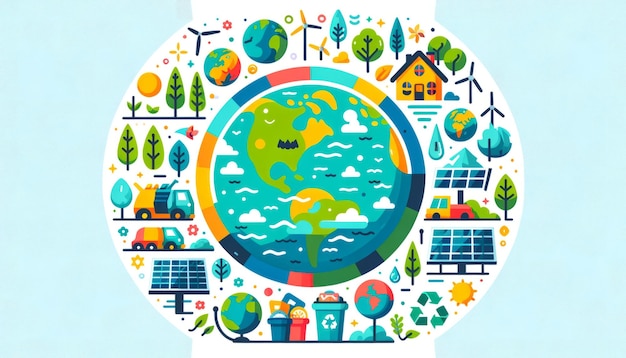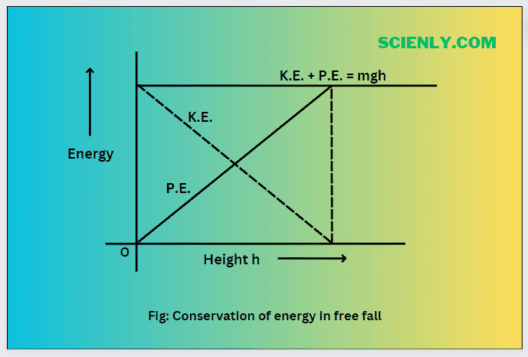The stewardship of the Earth, as encapsulated within biblical texts, presents a profound narrative that intertwines faith and environmental responsibility. This concept is not merely a spiritual or moral obligation; it weighs heavily upon the fabric of human existence, urging a holistic understanding of humanity’s role in the natural world. To dissect the nuances of this stewardship, it is essential to explore the foundational texts, the implications of responsible guardianship, and the contemporary relevance of these ancient teachings.
At its core, the Bible provides a framework for understanding the human relationship with the planet. The Genesis creation narrative lays the groundwork, depicting a world meticulously crafted by a divine creator. In Genesis 1:26-28, humanity is bestowed with the mandate to “fill the earth and subdue it,” an exhortation that has often been misinterpreted as a license for exploitation. However, a closer examination reveals a dual responsibility: to cultivate and protect. This intricate balance between dominion and stewardship sheds light on deeper philosophical considerations regarding humanity’s role as caretakers of God’s creation.
Emphasizing a symbiotic relationship with the environment, biblical stewardship calls for a holistic approach that harmonizes human activity with the ecosystem’s integrity. The concept of “shamar” in Hebrew, translated as “to keep,” underscores the responsibility to protect the land. This preservation extends beyond mere management; it involves a reverence for the intricate web of life that sustains us. The biblical injunction to care for creation resonates profoundly in our contemporary context, where ecological degradation has reached alarming proportions.
Furthermore, the prophetic literature of the Bible adds another layer to this discourse. Prophets like Jeremiah and Isaiah articulate a vision of restoration, urging society to reconcile its actions with ecological health. This prophetic call to return to right relationship with the land is an echo of today’s climate activism, inviting adherents to acknowledge the interconnectedness of all living things. The biblical texts weave a tapestry of hope, urging humanity to transcend anthropocentrism and embrace a holistic worldview that values all of creation.
Ecological debt is a concept that surfaces in modern discussions around environmental justice, echoing principles found in Leviticus. The Jubilee year, delineated in Leviticus 25, advocates for the return of lands and the liberation of people. This ancient principle underscores a belief in equitable stewardship—recognizing that the earth’s resources are communal rather than individual. Today, this reflects upon the necessity for sustainable practices that honor the contributions of previous generations while ensuring the earth’s viability for future inhabitants. The call for social and environmental justice finds its roots in these biblical ideals, urging individuals and communities alike to work towards a more equitable distribution of resources.
Additionally, the Bible’s teachings on consumption and waste resonate profoundly in the current climate crisis. The admonitions against overindulgence and greed are stark reminders of the consequences of unsustainable practices. Proverbs 12:10 states that “a righteous man regards the life of his animal,” which echoes a broader ethical consideration concerning all forms of life. This principle serves as a clarion call to rethink consumption patterns—the relentless pursuit of more must give way to a model that prioritizes sustainability and conscientious use of resources.
The interplay between scripture and environmentalism extends to the recognition of sacredness in creation. Many biblical passages that extol the beauty and intricacy of nature cultivate a reverence for the planet. Psalms, for instance, articulate profound joy in the natural world, inviting humanity to witness the divine reflection in the beauty of creation. This aesthetic appreciation translates into a powerful motivator for stewardship, as individuals who cherish the earth are more inclined to actively protect it. The natural world, seen through this sacred lens, becomes a source of inspiration and a bastion for spiritual reflection.
Moreover, the communal aspect of stewardship emphasized in the Bible reinforces the importance of collective action in environmental responsibility. The concept of “tikkun olam,” or “repairing the world,” resonates deeply with the call for partnership in caring for the earth. Just as various members of a community play distinct yet interrelated roles in promoting social welfare, the same must be true in the realm of environmental stewardship. Collective action, as inspired by biblical mandates, can mobilize communities to address the pressing challenges of climate change, habitat destruction, and resource scarcity.
In light of these biblical precepts, it becomes unequivocally clear that the stewardship of the Earth is not a dwindling concern but a pressing moral imperative. As stewards of creation, the onus lies on humanity to transcend individualistic and exploitative impulses. Upholding the tenets of biblical stewardship compels an ethical engagement with the environment, a commitment to social justice, and an embrace of sustainability practices that honor the intricate connections among all living beings.
The urgency of the climate crisis necessitates a reevaluation of our responsibilities as caretakers of the Earth. The biblical insights into stewardship afford not only a moral compass but also a clarion call for actionable change. Individuals, communities, and faith organizations are uniquely positioned to embody the environmental ethos espoused in scripture, transforming ancient wisdom into contemporary action. Thus, embracing stewardship of the Earth represents a profound opportunity to align spiritual beliefs with concrete environmental practices, fostering a healthy and sustainable planet for generations to come.








